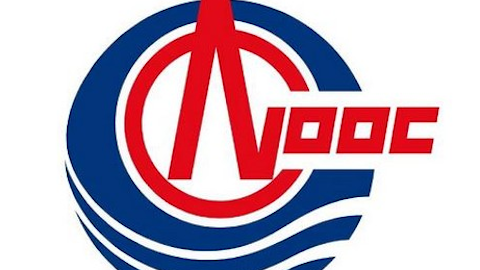The Canadian government’s rejection of Malaysian state-oil company Petronas’ $5.9 billion bid for Progress Energy Resources Corp. (TSE:PRQ), a Calgary-based natural gas company, cast fresh doubt on future acquisitions of Canadian natural resource assets by foreign companies. News of the rejection caused shares of PRQ to plummet 9% and sent jitters through the resource-heavy Toronto Stock Exchange. Shares in Nexen Inc. (NYSE:NXY) (TSE:NXY), the target of a highly controversial proposed $15.1 billion acquisition by Chinese state-owned oil company CNOOC Limited (NYSE:CEO), fell 5% on the news. As of November 5, 2012, shares in both Progress and Nexen were trading below the per share price offered by their respective suitors. The culprit: The Canadian government’s schizophrenic policies governing foreign investment in natural resources, despite worrisome signs that insufficient investment is slowing the development of the country’s tar sands.
Petronas and Progress Energy
Under Canadian law, the federal government is empowered to reject any foreign acquisition that it determines does not provide a “net benefit” to the country. Industry Minister Christian Paradis, who officially responsible for blocking the deal, is barred from commenting publicly on the rejection other than stating that the takeover proposal did not offer the ambiguous “net benefit” required by Canadian law. But rather than abandon the takeover following the official rejection on October 19, Petronas has gone to the mattresses, extending its deadline for completing the transaction to November 30, hiring a lobbying firm to go to bat for the company in Ottawa, holding dialogues with industry and government officials, and examining revisions to its deal proposal in attempt to placate a wary Conservative government.
Petronas is permitted to extend the deal deadline up to three times in 30-day increments. The company can utilize this grace period to make revisions to the terms of the deal and grant concessions to the Canadian government. The company already agreed to retain Progress Energy staff, according to an anonymous Petronas official, but more concessions seem to be in the offing as the company doubles down on its takeover bid. Although Progress Energy shares bounced following the extension of the deal deadline, equity markets have seemingly lost confidence that the deal will close, as evidenced by PRQ shares continuing to trade at a discount to the per share price offered for the company (as of November 5, 2012).
CNOOC and Nexen
The rejection of the Progress deal has even greater implications for the pending $15 billion acquisition of Canadian oil producer Nexen by Chinese state-owned oil company CNOOC. The Nexen deal is three times the size of the Progress Energy takeover and involves the arguably more controversial involvement of the Chinese government, which is subject to considerably more latent political hostility in Canada than the Malaysian government. Outlook for the CNOOC-Nexen deal has become considerably bleaker, despite generous concessions from CNOOC. Like Progress Energy, Nexen is trading a fair margin below the per share price offered by CNOOC.
Canadian Heads in the (Oil) Sands
Unfortunately, this political furor masks a worrisome economic situation for both Canada as a whole and the oil sands region in particular. First, economic conditions in the country, especially in the oil-rich western provinces, show signs of deterioration. The Canadian private sector posted a net loss of jobs in October and earnings of TSX companies are down 30% thus far in the third quarter. Second, according to a confidential internal memo by a high-ranking official of Canada’s Department of Natural Resources, rising costs of bitumen (tar sand oil) extraction combined with a substantial decline in oil prices over the last six months is squeezing much needed investment in oil and gas resources.
The memo, dated April 2012, further states that both capital expenditures and operating costs have doubled since 2001 for a 100,000-barrel/day oil sand project. According to the memo, in order to meet existing resource development forecasts, the industry requires “$100 billion in up-front investment excluding ongoing capital expenditures to sustain operations” – almost twice the total investment in the tar sands since 1958.
Finally, the report states that companies have reacted to increasing cost structures by forming partnerships to share risks, costs, and expertise as well as going to such extreme measures as flying employees thousands of miles to extraction sites in an effort to meet labor requirements. Increasing capital costs will continue to propel consolidation in the industry as larger companies with advantageous economies of scale put pressure on their smaller, less efficient rivals.
In short, Canada desperately needs massive investment in its oil and gas deposits to sustain the current pace of development. Two major problems confront the industry: 1) human capital shortages and 2) capex requirements. The first is being addressed in typical public sector sclerotic fashion with programs to redirect human capital to the industry and geographic region. And as wages rise, labor shortages will eventually be alleviated.
The second problem is more worrisome. One hundred billion dollars in up-front investment could capsize the domestic oil industry. Moreover, the country also needs to expand its storage and transportation infrastructure. To these ends, the Conservative government led by Stephen Harper has gone to great lengths to attract foreign capital – especially from Asia. In recent years, these efforts, combined with the Chinese economy’s seemingly insatiable thirst for oil and gas, have resulted in the formation of a number of minority partnerships involving state-owned enterprises, none of which attracted political controversy. Thus, the final rejection of either the Progress or Nexen deal would be quite ironic. But as public opinion sours on blockbuster, full-fledged takeovers by state-owned foreign companies, the Canadian government’s change of tack should not be surprising.
Ideally, the relevant parties to the Petronas-Progress Energy deal would arrive at some compromise that includes concessions from Petronas as well as restrictions on the company’s operations in Canada. The CNOOC-Nexen deal is much larger and more controversial but could essentially be closed along the same lines as the former – with a mix concessions and conditions. These could include some combination of binding investment and employment targets, taxes and royalties, limitations on profit repatriation, ownership limits, corporate governance restrictions, and binding environmental standards.
In the long-term, a more transparent and straightforward process for foreign acquisitions would serve Canada better than the current opaque “net benefit” framework. Even a simple clarification of the standing criteria would be an improvement. The existing process is clearly fostering confusion, undermining confidence in the business environment, and hindering Canada’s drive for foreign investment at time when the country is truly in dire need of it.
How are the world’s most successful money managers playing the situation?
While we cannot track fund interest in Petronas or Progress Energy Resources, we can look at the deal that is still in play between CNOOC-Nexen. According to SEC 13F filings, only one hedge fund is invested in both parties: Cliff Asness’s AQR Capital. CNOOC bulls include Joel Greenblatt, Ken Fisher and Brian Kelly, while Nexen’s community of top-notch investors is larger, and includes David Dreman, Israel Englander, and D.E. Shaw. Fisher has the most invested in the Chinese state-owned oil company by far, owning over $365 million worth of CNOOC at the end of June. Here’s a full look at Fisher’s 13F portfolio, and here’s an earlier analysis of the pending deal.




